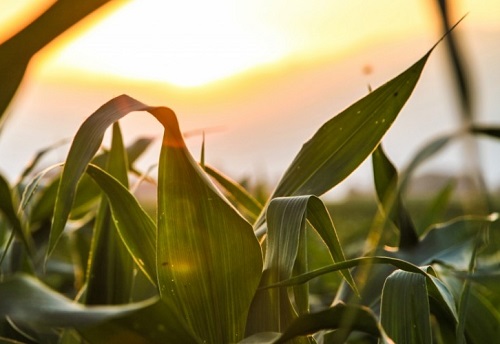 One of the most prevalent pieces of writing advice is to be specific. Use detail to create a vivid image in the reader’s mind. Avoid words like “something” or “stuff” (I know, my writing could use some work). Use active verbs and specific nouns instead of adverbs and adjectives. This is all great, but it doesn’t just apply to writing. It can improve our communication in other forms as well.
One of the most prevalent pieces of writing advice is to be specific. Use detail to create a vivid image in the reader’s mind. Avoid words like “something” or “stuff” (I know, my writing could use some work). Use active verbs and specific nouns instead of adverbs and adjectives. This is all great, but it doesn’t just apply to writing. It can improve our communication in other forms as well.
I was recently thinking about this idea when I heard the phrase, “Thanks for everything.” Maybe I heard myself saying it. It is one I use too often. I say too often because what does it really mean?
Thanks for all the goodness in my life? Thanks for everything you’ve ever done for me? Thanks for all the kind acts I can’t bother to list right now? I know I appreciate you, but I can’t remember the specific reason, so thanks?
Granted, this is being a bit facetious. We know that isn’t how we mean it, and they know that isn’t how we mean it. Typically, I say it because I’m trying to convey my inability to describe how thankful I am, that there are just too many kindnesses to cover in a short “thanks”. Maybe instead of falling back on this generalization, though, I could explore some more appropriate way to express my appreciation.
What would that look like?
I’m not entirely sure, but I’m guessing it would take some work, perhaps a little more forethought. Usually I find myself falling back on “thanks for everything” when someone who has been helpful is leaving (or I’m leaving them). I feel like I can’t communicate my gratitude in the quick goodbye that is coming. But those goodbyes rarely come as a surprise.
Maybe I could write a little note with more detail about how much I appreciate this person, then pass it off to them during the goodbye, like the inconspicuous exchange of a tip I always admire in the movies (personally, I never pull it off).
Maybe I could skip the “everything” and mention a few specifics I am especially thankful for. Wouldn’t it be better to say, “Thanks for bringing the spinach dip and playing with the dog,” even if the person also brought chips and helped wash dishes? Are they going to be offended that you didn’t provide a complete list of their good deeds? Or are they more likely to appreciate that you noticed some of their contributions?
The problem with the “everything” is that you could say it to “everyone”. It is so general that it means nothing. By making your thanks specific, you make it personal. Maybe you don’t cover it all, but you do make it clear that this thank you is for them.
By trying to ensure that we leave nothing out, the catch-all “thanks for everything” mostly ensures that we leave nothing in. At least nothing memorable.
I could be nit-picking my gratitude, of course. Certainly a vague thank you is better than none at all. It feels like something worth experimenting with anyway.
What do you think? What kind of thank you is your default? What kind do you prefer from others? Is this a case for generalization over specificity?
I was just debating this as I wrote thank you notes for our baby shower gifts. My default for lots of gifts or nice gestures is to say a blanket thank you and then mention a few specific ones and what they meant to me/us.
I think that’s a good call. If you list every item, I’m sure it comes off as more if a checklist than a thank you note.
I love the idea of a personal note with heartfelt thanks. I know I love receiving one.
Melanie us pretty good about getting think you cards out for gifts. I like the idea of doing the same just when people help you out with stuff.
I, too, am often general when expressing my thanks verbally. My default expressions are “You’re the best” or “Thanks!” Depending on the situation, I may use a few more words.
I agree that at first glance, generalities would prevent us from simply making a thank you list. However, I am reminded of times someone has mentioned specifically why they were grateful for me or my actions. I felt noticed. I felt appreciated. I felt loved.
On the other side of this, I often struggle with how to respond to a thank you. I have had several students express that my go-to “sure” seems like a rude way to react to their gratitude. Maybe they were expecting the Chick-fil-A style “my pleasure.” Or maybe I should stick with the traditional “You’re welcome.”
I feel the same way about acknowledging thanks. I remember saying, “Don’t mention” or “It was nothing” when I was younger, and someone told me they didn’t like that because it minimized what they were thanking me for. The sentiment was, “but it was something, and I want to thank you for it.” I don’t say that anymore, but I don’t totally agree.
I think “You’re welcome” tends to do the job. Other options, which maybe feel over the top, could be “Happy to help,” “Anytime,” or “Indeedily weedily” (if you’re Ned Flanders). Probably, you’re doing alright as long as you stay away from no response, or just, “Whatever.”